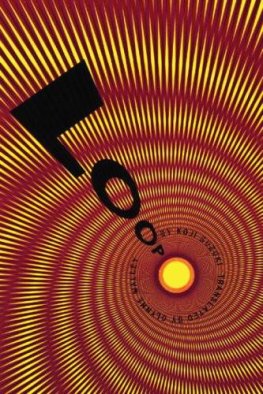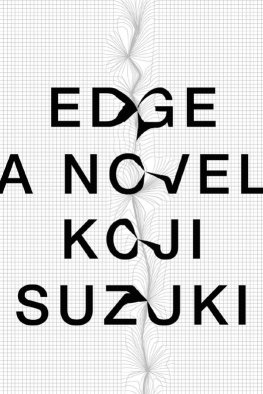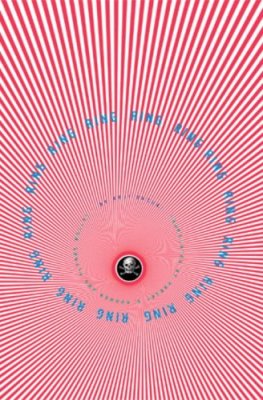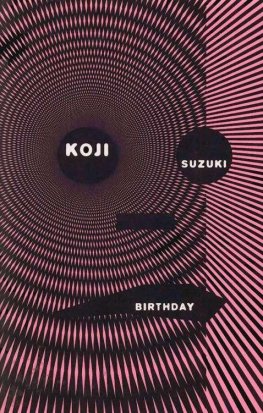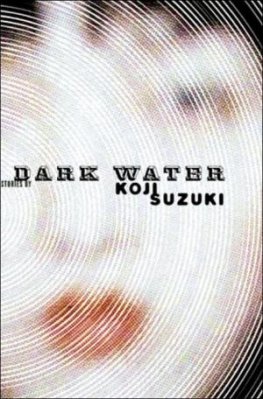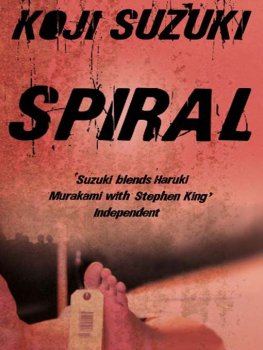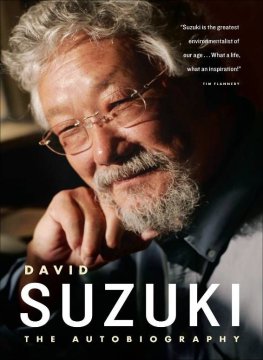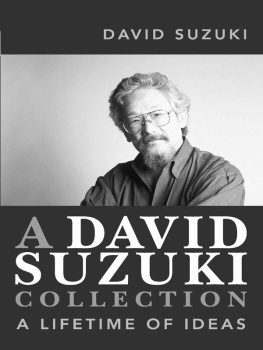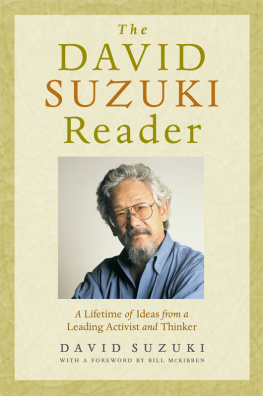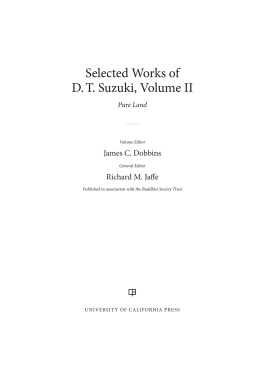PART I AT THE END OF THE NIGHT
He opened the sliding glass door, and the smell of the sea poured into the room. There was hardly any wind-the humid night air rose straight up from the black water of the bay to envelop his body, fresh from the bath. The resulting immediacy of the ocean was a not-unpleasant feeling for Kaoru.
He made a habit of going out onto the balcony after dinner to observe the movements of the stars and the waxing and waning of the moon. The moon's expression was constantly, subtly changing for him, and watching it gave him a mystical sort of feeling. Often it would give him ideas.
Gazing up into the night sky was part of his daily routine. He'd slide open the door, feel around in the darkness below until he found his sandals, and step into them. Kaoru liked it up here on the twenty-ninth floor of the apartment tower, on this balcony thrust into the darkness. It was where he felt most at home.
September was mostly gone, but not the heat of summer. The tropical evenings had arrived in June, and while the calendar now said it was autumn, they showed no sign of faltering yet.
He didn't know when the summers had started getting longer. All he knew was that coming out onto the balcony like this every evening never cooled him off. It just brought him face to face with the heat.
But then the stars rushed right down to him, so close that he felt like he could touch them if he only stretched out his hand, and he forgot the heat.
The residential part of Odaiba, facing Tokyo Bay, boasted an overgrowth of condominium towers, but not many residents. The banks of windows only gave off a limited amount of light, little enough in fact to allow a clear view of the stars.
An occasional fresh breeze took the sea out of the air some, and his hair, just washed and still clinging to the back of his neck, began to dry.
"Kaoru, close the door! You'll catch cold!" His mother's voice, from behind the kitchen counter. The movement of the air must have told her that the door was open. She couldn't see the balcony from where she was, though, so Kaoru doubted she realized that he was outside, fully exposed to the night air.
How could anybody catch cold in this heat, he wondered, exasperated at his mother's over-protectiveness. Not that it was anything new. He had no doubt that if she knew he was out on the balcony, she'd literally drag him back inside. He shut the door behind him so he couldn't hear her anymore.
Now he was the sole possessor of this sliver of space jutting into the sky a hundred yards above the ground. He turned around and looked through the glass door into the apartment. He couldn't see his mother directly. But he could read her presence in the milky band of fluorescent light that shone from the kitchen onto the sofa in the living room. As she stood in front of the sink, cleaning up after the meal, her movements caused slight disturbances in the rays of light.
Kaoru returned his gaze to the darkness and thought the same thoughts he always did. He dreamed of being able to elucidate, somehow, the workings of the world that surrounded and contained him. It wasn't that he hoped to solve a mystery or two on the cutting edge of a particular field. What he desired was to discover a unifying theory, something to explain all phenomena in the natural world. His father, an information-engineering researcher, had basically the same dream.
When they were together, father and son discussed nothing but the natural sciences.
But it wasn't quite right to call them discussions. Basically, Kaoru, who had just turned ten, shot questions at his father, and his father answered them. Kaoru's father, Hideyuki, had started out as part of a team working on an artificial life project. Then he'd elected to move his research into a university setting, becoming a professor. Hideyuki never blew off Kaoru's questions. In fact, he maintained that his son's bold thinking, unrestrained as it was by common sense, sometimes even gave him hints he could use in his research. Their conversations were always deadly serious.
Whenever Hideyuki managed to get a Sunday afternoon off, he and Kaoru would spend it in heated discussions, the progress of which Machiko, Hideyuki's wife and Kaoru's mother, would watch with a satisfied look on her face. Her husband had a tendency to get so involved in what he was saying that he would forget his surroundings; her son, on the other hand, never neglected to be mindful that his mother was probably feeling left out because she was unable to join in the debates. He'd explain the issues they were discussing, breaking them down into bite-size chunks, in an effort to allow her to participate. It was a kind of consideration Hideyuki would never be able to imitate.
She always wore the same look of satisfaction as she watched her son, full of gratitude for his effortless kindness and pride that at age ten he could already discuss the natural sciences at a level so far beyond her own understanding.
Headlights flowed along on Rainbow Bridge far below. Kaoru wondered expectantly if his father's motorbike was in that belt of light. As always, he couldn't wait for his father to get home.
It was ten years ago that Hideyuki had gone from mere team member on the artificial life project to university professor; ten years ago that he'd moved from the Tokyo suburbs to this condo in Odaiba. The living environment here-the tall apartment buildings on the water's edge suited his family's tastes. Kaoru never got tired of looking down from on high, and then when night came, he'd pull the stars down close, using them to bolster his imagination concerning the world whose ways he couldn't yet fully grasp.
A living space high above the ground: the kind of thing to foster a bird's eye. Kaoru fell to wondering. If birds represented an evolutionary advance from reptiles, it meant that living spaces had gradually progressed skyward. What effect did that have on human evolution? Kaoru realized that it had been a month since he'd set foot on soil.
As he placed his hands on the balcony railing, about his own height, and stretched, he felt it. And not for the first time, either. He'd felt it from time to time for as long as he could remember. Only never, oddly enough, had the feeling come over him when he was with his family.
He was used to it by now. So he didn't turn around, even though he could feel someone watching him from behind. He knew what would be there if he did: the same living room, the dining room beyond it, the kitchen next to it, all unchanged. And in the kitchen, his mother Machiko washing dishes just like always.
Kaoru shook his head to chase away the feeling that he was being watched. And the sensation seemed to take a step back, blending into the darkness and disappearing into the sky.
Once he was sure it was gone, Kaoru turned around and pressed his back against the railing. Everything was just as it had been. His mother's shadow, flickering in the band of light from the kitchen doorway. Where had they gone, those countless eyes watching him from behind? Kaoru had felt them, unmistakably. Innumerable gazes, fastened on him.
He should have felt those inky stares on his back when he was like this, staring into the apartment, his back to the night. But now those eyes had disappeared, assimilated into the darkness.
Just what was it that was watching him? Kaoru had never thrown this question out at his father. He doubted even his father would be able to give him an answer.
Now he felt a chill, in spite of the heat. He no longer felt like being on the balcony.
Kaoru went back into the living room and peeked into the kitchen at his mother. She'd finished washing the dishes and was now wiping the edge of the sink with a dishcloth. Her back was to him, and she was humming. He stared at her thin, elegant shoulders, willing her to notice his gaze. But she just kept humming, unmoved.

